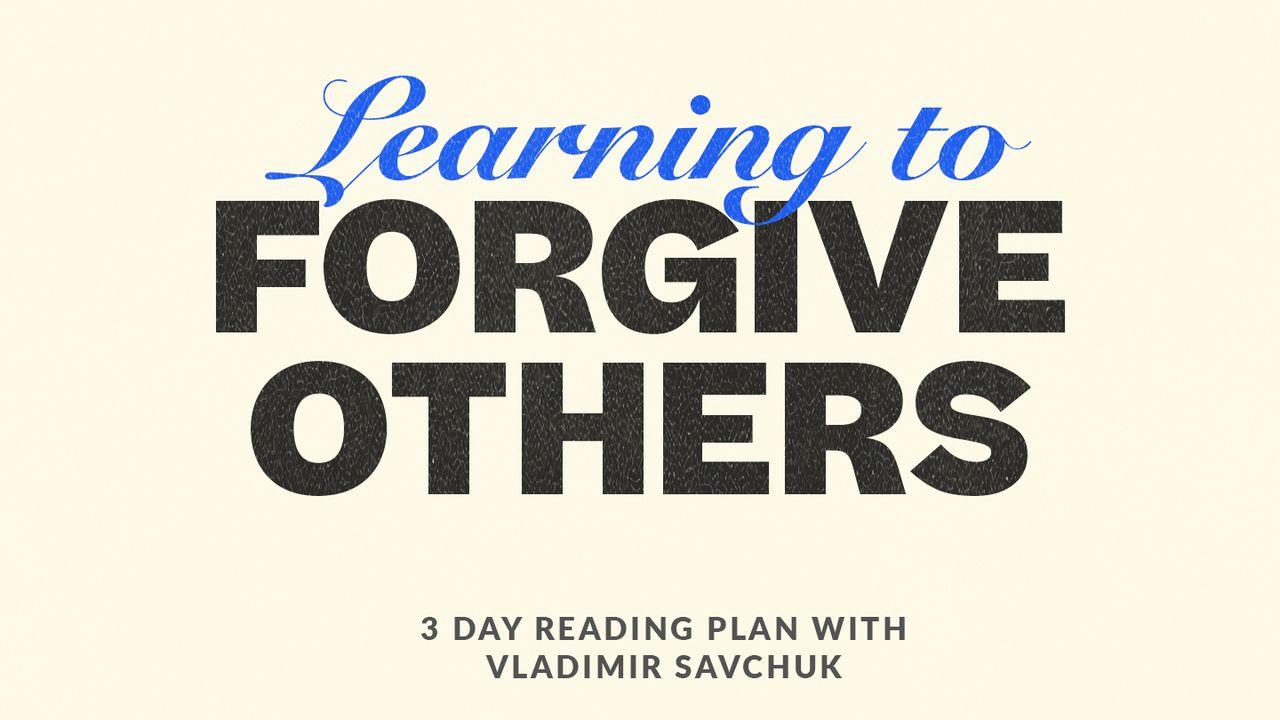How to Forgive Someone and Move Forward with a Clean Slate
Wiki Article
Comprehending the Relevance of Forgiveness in Healing Relationships
Mercy is usually checked out as a straightforward act of letting go, yet its relevance in healing connections extends far past mere absolution. What remains to be revealed is the profound impact mercy can have on specific development and public consistency.The Definition of Mercy
Although mercy is frequently viewed as a straightforward act of allowing go, its meaning encompasses an intricate interaction of emotional and psychological procedures. At its core, mercy is the conscious decision to release sensations of resentment or revenge toward an individual or team that has actually caused damage. This procedure is not merely concerning discharging the offender; rather, it includes a profound psychological transformation that can result in personal growth and healing.Forgiveness is diverse, often characterized by an individual's internal struggle to integrate their pain with the need for peace. It calls for recognizing the wrongs devoted, processing the linked feelings, and eventually deciding to relocate ahead without the concern of animosity. This option frequently requires a cognitive change, where one reframes their understanding of the perpetrator and the transgression, permitting compassion and recognizing to arise.
Importantly, mercy does not suggest excusing the behavior or neglecting the crime; it is an intentional act that prioritizes emotional health. By specifying mercy in this manner, we can appreciate its role in assisting in healthier relationships and cultivating emotional strength, setting the stage for much deeper exploration right into its advantages.
Emotional Advantages of Mercy
Mercy offers substantial emotional benefits that can exceptionally impact an individual's mental health and wellness and overall health. When an individual selects to forgive, they proactively release sensations of temper, anger, and bitterness, which can or else create a heavy emotional problem. This release often brings about a decrease in stress and anxiety and stress and anxiety, advertising a feeling of tranquility and emotional security.Additionally, mercy cultivates a boosted capacity for compassion and concern. By recognizing the perspective of the culprit, people can cultivate a much deeper psychological strength, which enhances their ability to manage future difficulties. This process not only boosts psychological law yet additionally adds to a more favorable overview on life.
Furthermore, flexible others can reinforce one's self-worth and self-worth. It allows individuals to reclaim their personal power, damaging totally free from the unfavorable cycles of victimhood - The importance of forgiveness. This newfound empowerment can result in healthier emotional feedbacks and more powerful social relationships
Mercy vs. Settlement
The distinction between forgiveness and reconciliation is essential in comprehending the characteristics of healing relationships. Forgiveness is an internal procedure in which a private chooses to allow go of animosity and adverse sensations in the direction of a person that has actually triggered damage. It is mostly a personal journey, concentrated on emotional launch and self-healing, allowing one to move on without lugging the worry of previous grievances.In contrast, settlement includes restoring and recovering the partnership to a state of depend on and mutual regard. This process usually calls for open communication, active involvement from both events, and a commitment to attending to the underlying problems that resulted in the conflict. While mercy can occur individually, reconciliation demands the determination of both people to participate in discussion and pursue a common understanding.
It is necessary to keep in mind that forgiveness does not always bring about reconciliation. A person may forgive one more without opting to bring back the partnership, particularly if depend on has been irrevocably harmed or if the relationship is considered harmful. Understanding this difference enables individuals to navigate their feelings properly and make informed decisions concerning their relationships.
Steps to Grow Mercy
Growing forgiveness is a deliberate process that includes numerous vital steps targeted at facilitating emotional healing. The initial action is recognizing the pain triggered by the offense. Recognizing one's feelings is necessary, as it permits individuals to refine their feelings truly.Following, reviewing the event and recognizing its effect can give clarity. This reflection should include checking out the inspirations click here to find out more behind the wrongdoer's activities and recognizing that every person is fallible.
The 3rd action includes making an aware decision to forgive. This decision is crucial, as it symbolizes a willingness to allow go of bitterness and move on.
Consequently, sharing feelings in a useful manner can be beneficial - The importance of forgiveness. Whether through journaling, talking with a trusted good friend, or seeking treatment, expression of emotions can assist in the forgiveness trip
Real-Life Examples of Forgiveness

In an additional instance, a dense group of buddies encountered a considerable rift after one participant inadvertently shared a private secret. Instead of click to investigate nurturing resentment, the impacted buddy chose to forgive, recognizing the value of valuing the relationship over the blunder. This decision encouraged open dialogue and inevitably reinforced their link.

Conclusion
In verdict, mercy plays a pivotal function in the recovery of connections by helping with the launch of negative emotions and promoting empathy. By identifying between mercy and reconciliation, people can take part in a useful procedure that boosts emotional wellness. Carrying out steps to cultivate forgiveness can lead to transformative outcomes, reinforcing links and promoting an encouraging setting. Eventually, the technique of mercy acts as a catalyst for individual growth and the nurturing of healthier interpersonal dynamics.
Report this wiki page